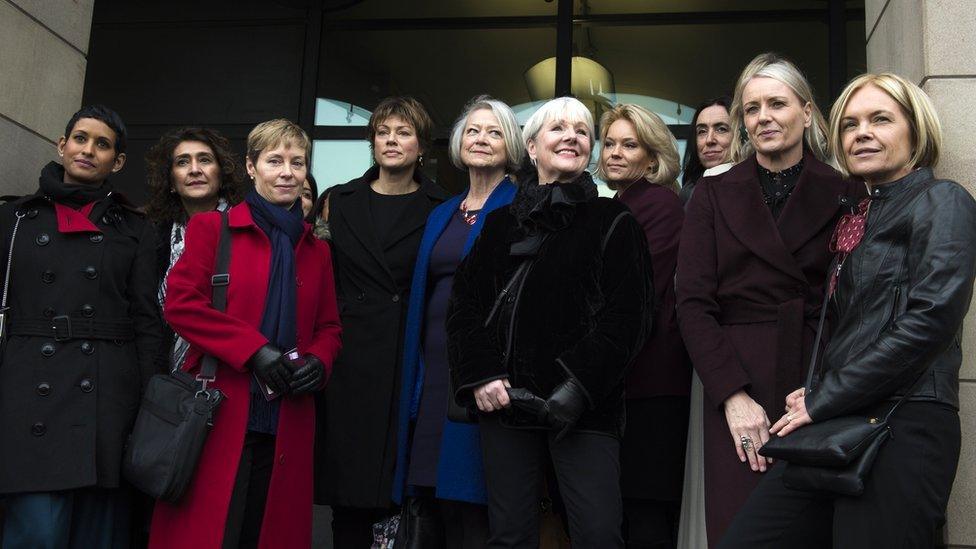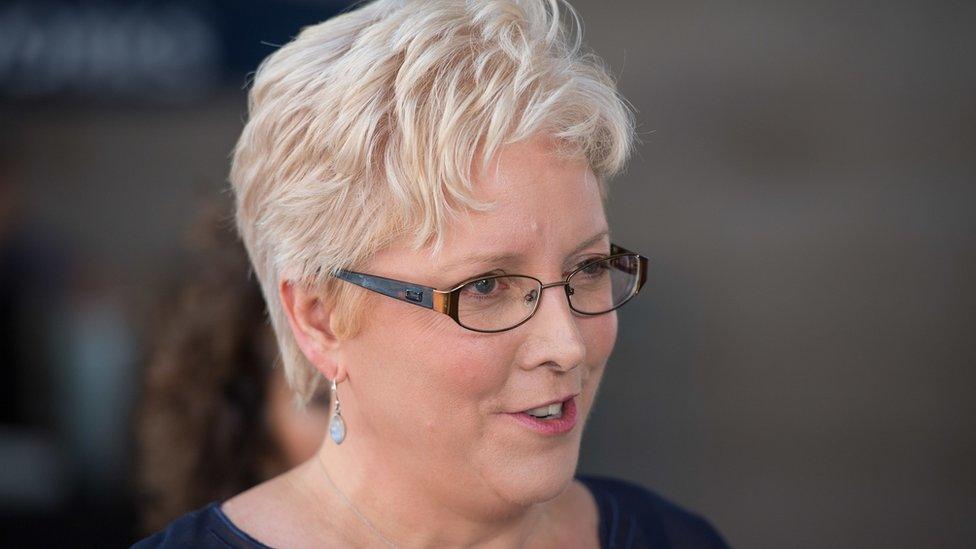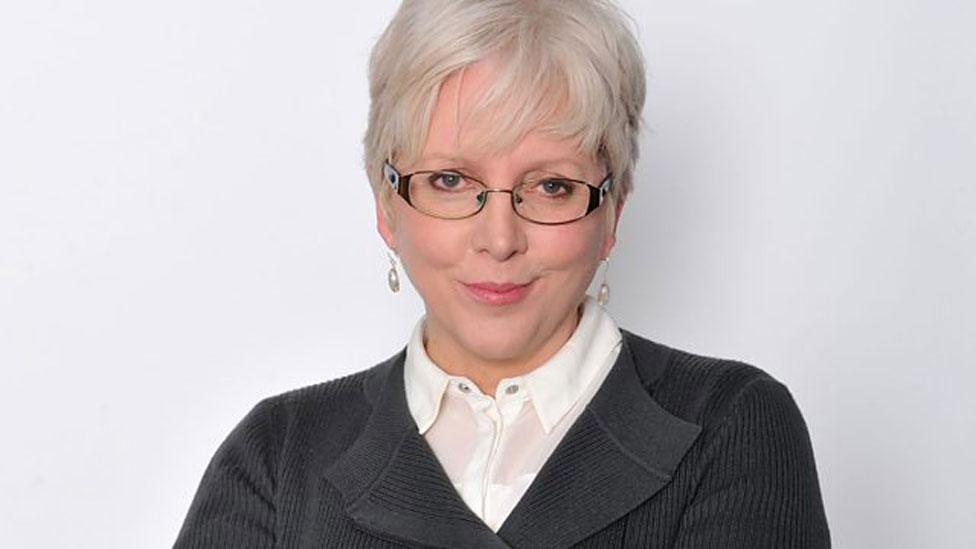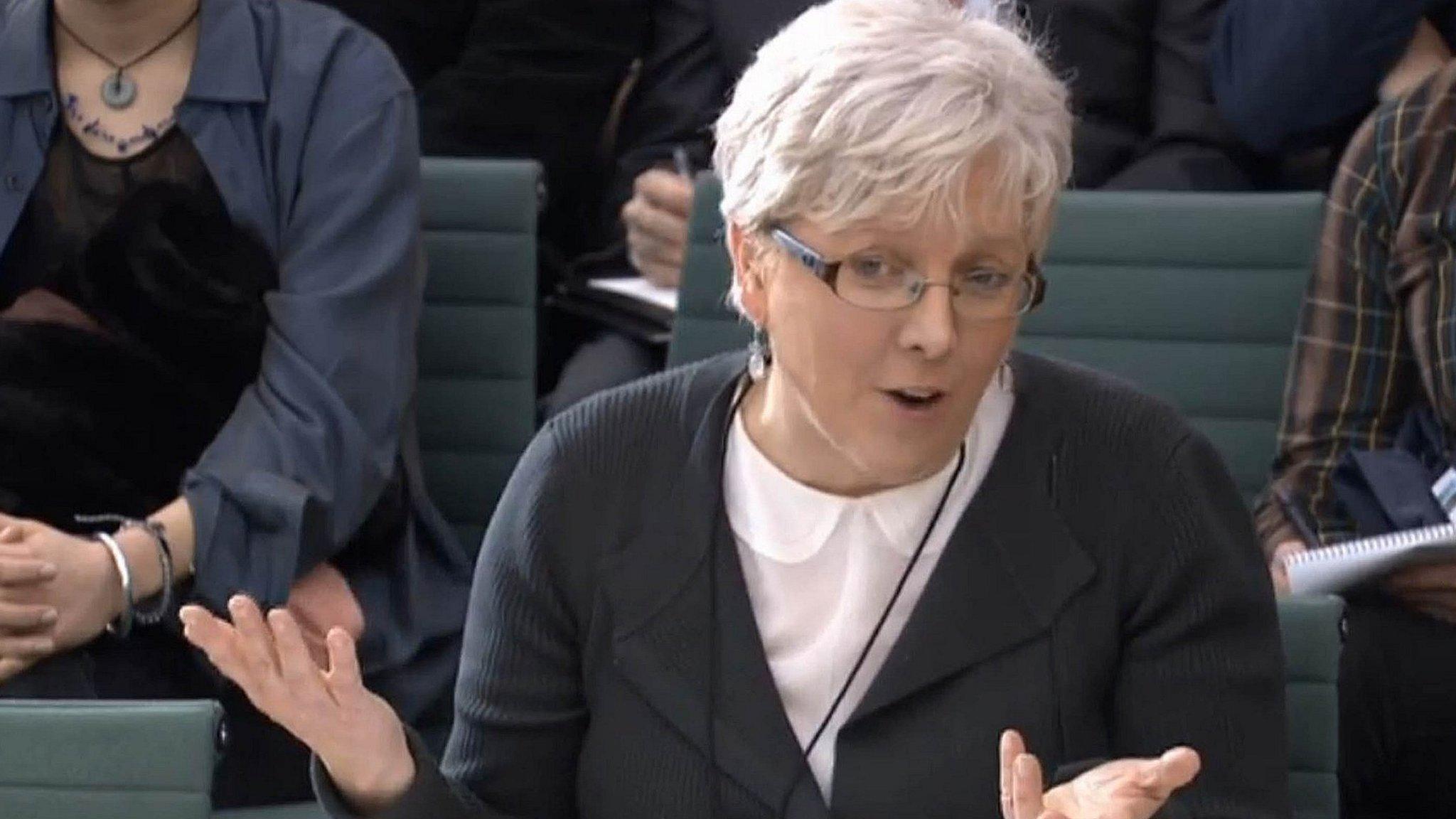BBC cuts gender pay gap to 7.6%
- Published

BBC presenters including Mariella Frostrup (R), Kate Adie (C), Kate Silverton (C-L) and Naga Munchetty (L) in January ahead of MPs hearing evidence about BBC pay
The BBC has reduced its median gender pay gap from 9.3% to 7.6%.
The corporation has also reduced its mean pay gap from 10.7% to 8.4%.
The improvements come ahead of the publication of the BBC's annual report next week, a year on from the first publication of the pay of on-air broadcasters paid more than £150,000.
Last year's salary disclosures prompted controversy over two separate issues - the gender pay gap and instances of unequal pay.
The reduction over the past year, of around a fifth, marks a significant adjustment given it affects thousands of staff.
However, the corporation has calculated that about a quarter of the improvement is owed to the merger between BBC Studios and BBC Worldwide.
Of the remaining pay gap, the BBC calculates that 7.1% is accounted for by structural issues: too few women in leadership roles and more women than men in the lowest pay quartile.
The BBC has marginally improved the representation of women in senior leadership positions, from 42.1% to 43.3%.
Critics will argue that this last metric represents slow progress. The BBC has pledged to eradicate its gender pay gap by 2020. The national average is over 19%.

Former China editor Carrie Gracie has won back pay from the BBC
The gender pay gap at the BBC compares favourably with that at other media organisations. Senior figures at the BBC were frustrated by the fact that the corporation had to report its figures before others, leaving it relatively exposed.
The reduction in the gender pay gap is the result of a range of measures. These include raising specific salaries in response to grievances over unequal pay, changing the framework and banding for some salaries, and simplifying several roles.
The corporation endured months of adverse publicity after the salary disclosures last year, which were required of the BBC by the government in the most recent negotiation over renewal of its Royal Charter.
The domination of men at the top of the list caused widespread concern over gender equality at the BBC. But it was the revelation that some women were paid significantly less than men for doing similar jobs - or the same jobs - that led to the largest outcry.
Last week the BBC finally settled its grievance procedure with Carrie Gracie, the former China editor.
If you're interested in issues such as these, please follow me on Twitter, external or Facebook, external; and also please subscribe to The Media Show podcast, external from Radio 4. I'm grateful for all constructive feedback. Thanks.
- Published29 June 2018

- Published31 January 2018

- Published5 April 2018

- Published7 April 2018
